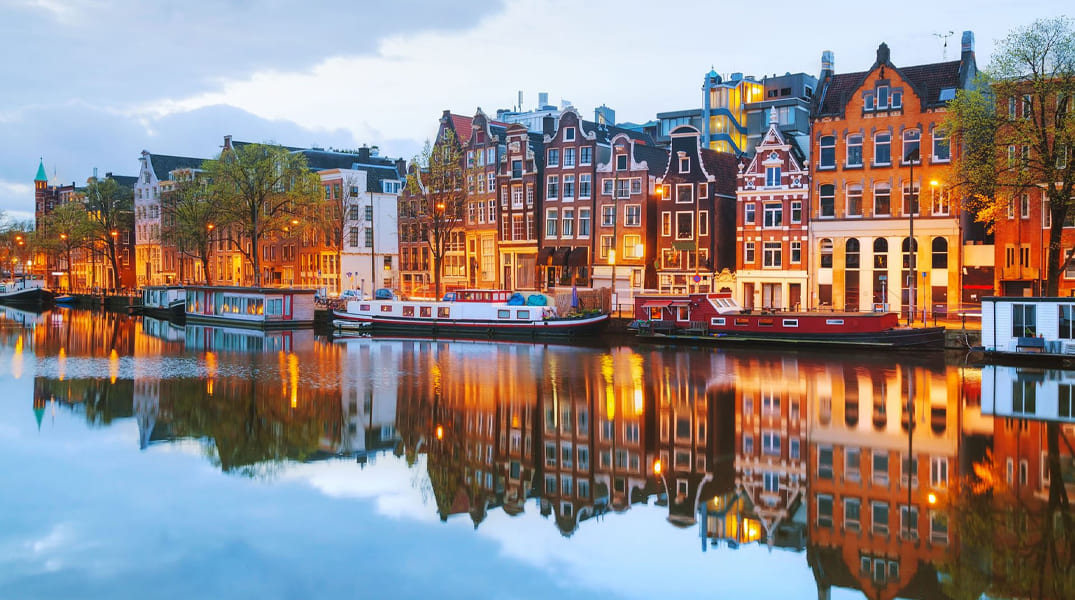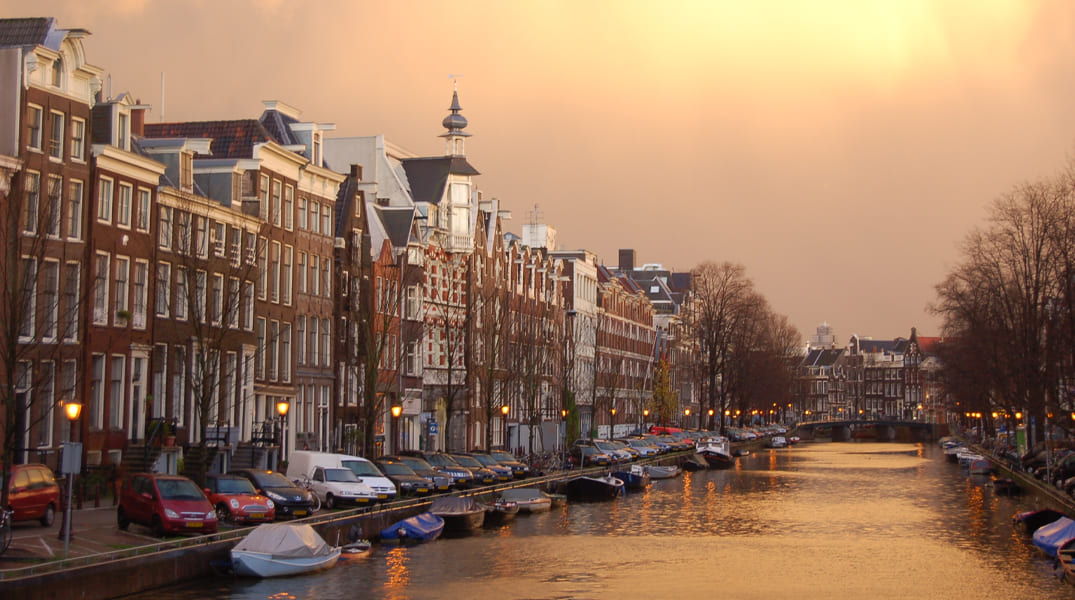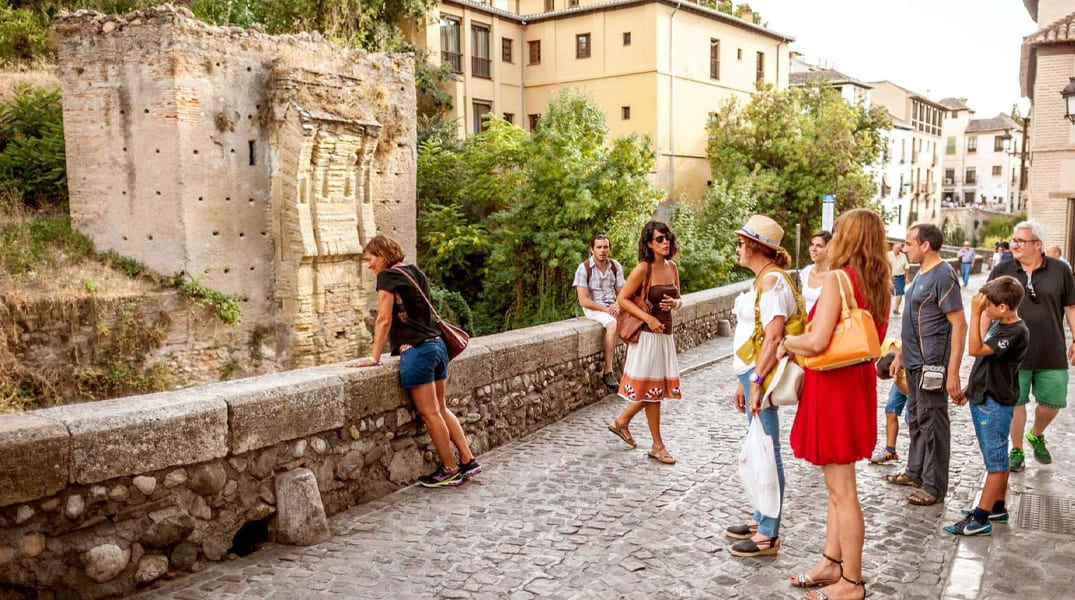Choosing a place to live is a difficult decision that requires a balanced approach. It is necessary to consider not only basic factors such as employment opportunities, favorable climate, or the availability of real estate, but also the attitude of local residents towards newcomers from other countries. Yes, every place has its own mentality, and you need to be prepared for any possible turn of events.
Spain and the Netherlands are two beautiful European countries, each with its own advantages and disadvantages. Both countries are part of the European Union, but that is almost the only thing they have in common. This makes it interesting to consider them from the perspective of possible relocation and permanent residence.

Contents
- Climate
- Healthcare
- Employment
- Local Cuisine
- Attitude Towards Newcomers
- Spain or the Netherlands: Where is it Better to Live?
Climate
Spain, a country washed by the waters of the Mediterranean Sea and the Atlantic Ocean, is famous for its warm and sunny climate. However, when talking about the Spanish climate, it is important to understand that it is not homogeneous.
Mediterranean climate:
- Southern Spain (Andalusia, Murcia, Valencia): Characterized by hot, dry summers and mild, wet winters. Summer temperatures can reach +35-40 degrees Celsius, and in winter they rarely drop below +10 degrees.
- Baleares Islands: The climate is similar to that of southern Spain but with milder winters.
- Canary Islands: Due to their geographical location, these islands have a subtropical climate with year-round warm weather. In winter, temperatures rarely drop below +18 degrees, and in summer they stay around +25 degrees.
Atlantic climate:
- Northern Spain (Asturias, Cantabria, Galicia): The climate is wetter and cooler than in the south. Summers are short and cool, and winters are mild and rainy.
- Basque Country: The climate is similar to that of northern Spain but with more pronounced seasonality.
Continental climate – this is central Spain (Madrid, Castile-La Mancha). The central part has colder winters and hot, dry summers.

Spain is one of the sunniest countries in Europe, with a large number of sunny days per year. This is especially true for the coast, including Costa del Sol and Costa Blanca, which are famous for their well-maintained and, importantly, free beaches. Many residents of European countries move here for permanent residence, which is not surprising, as such a climate is hard to find in another European country. By the way, you can move here not only by buying or renting a house but also by exchanging. You can learn more about exchanging your property for real estate in Spain on this page.

What about the Netherlands? The climate here, frankly, is not as favorable. It is characterized by:
- Cold winter. Winter temperatures rarely drop below -5 degrees Celsius, but frosts and snowfalls are common.
- Cool summer. Summers in the Netherlands are cool and rainy, with average temperatures around +20-25 degrees Celsius. However, there are also very hot days, so the weather is quite changeable.
- High humidity. Due to its proximity to the sea, the air humidity in the Netherlands is quite high, which can cause a feeling of dampness.
- Strong wind. Wind is a frequent guest in the Netherlands, especially on the coast.
- Frequent rains. It rains often in the Netherlands – on average about 100 days a year.

Healthcare
Spain has a universal healthcare system (SNS) that covers the entire population of the country. It is funded by taxes and provides free access to basic medical services, including primary care, hospitalization, surgeries, and medications. In addition to the SNS, Spain has a developed private healthcare system that offers a wider range of services and faster service.

Hospitals and clinics in Spain are equipped with modern equipment, allowing for complex surgeries and other medical procedures. This situation is typical not only for large metropolises but also for relatively small towns.

The situation with healthcare in the Netherlands is at approximately the same high level. Just like in Spain, the system here is based on mandatory health insurance, which is funded by contributions from citizens and employers. All insurance companies offer basic insurance that covers essential medical services, including primary care, hospitalization, surgeries, and medications. Additionally, you can purchase insurance that expands the range of services and provides more comfortable service conditions.
The only point: doctors in the Netherlands communicate freely in English, while in Spain, communication is more commonly in Spanish.
Employment
Spain and the Netherlands are two countries that attract immigrants from different parts of the world. However, the employment situation for newcomers in these countries has its own features and challenges.
Let’s start with the advantages of Spain. Compared to the Netherlands, real estate here is more affordable, which can be an attractive factor for potential relocators. Our agency “M2 Real Estate” offers many verified real estate purchase options. New listings are constantly published on our website, which undergo strict moderation.

In Spain, there is always a high seasonal demand for workers, for example, in the tourism and construction sectors. You can also find simpler jobs, such as harvesting. But there are also challenges, such as a relatively high unemployment rate, especially among young people, which makes job searching difficult. Local employers prefer Spaniards, but if you are a highly skilled specialist, finding a job will be much easier. To increase your chances, English will not be enough, so expect to learn Spanish.
In the Netherlands, the labor market is quite competitive, especially in highly qualified professions. However, the average salary here is higher compared to Spain: according to the latest data, it is about 2778 euros before taxes (in Spain – about 1975 euros). However, the difference in salary is offset by the relatively high cost of living in the Netherlands – in Spain, this is objectively better.
Local Cuisine
Perhaps one of the most subjective points, because everyone has their own taste preferences.
Spanish cuisine is not just a set of dishes, but a true cultural heritage reflecting a rich history, geographical diversity, and passion for life. It is famous for its vibrant flavors, aromas, and simplicity of preparation, as well as the availability of fresh, seasonal products.

Spanish cuisine is not a single entity. Each region of the country has its own unique culinary traditions:
- Catalonia: Known for its seafood, paellas, and vegetable dishes such as “Escalivada” – baked eggplants with peppers and onions.
- Basque Country: Famous for its seafood dishes. One interesting delicacy is Angulas (glass eel fried with chili peppers and garlic).
- Andalusia: Known for its Tapas, Gazpacho (cold tomato soup), and “Flamenquín” – a pork roll with ham.
- Madrid: Famous for its traditional “Cocido Madrileño” – a dish of lamb, chickpeas, and vegetables, as well as “Bocadillo de Calamares” – a sandwich with calamari.
- Galicia: Known for its seafood, especially “Pulpo a la Gallega” – boiled octopus with potatoes, and “Empanadas” – pies with various fillings.
Food in Spain is not just about consuming food, but a real event. Spaniards love to eat in the company of friends and family, spending several hours at the table and enjoying delicious food, good wine, and conversation.
Dutch cuisine may not be as famous as French, Spanish, or Italian, but it has its own charm and unique character, reflecting the history, climate, and culture of this country.

Here are some well-known dishes:
- Stamppot. A traditional dish consisting of mashed potatoes mixed with various vegetables (cabbage, carrots, or beets). Often served with sausages or frankfurters.
- Erwtensoep. A thick pea soup often made with smoked sausage.
- Pannenkoeken. Thin pancakes that can be served for breakfast or dessert, with various fillings – from sugar and cinnamon to fruits and cheese.
- Frikandel: Fried sausages often served with mustard and sauce.
Overall, Dutch cuisine is simple, practical, and hearty, characterized by unexpected flavors and influences from other cultures. It does not claim sophistication, but it is tasty, accessible, and reflects the unique culture and lifestyle of the Dutch.
Attitude Towards Newcomers
Spain is one of the most popular tourist countries in the world, and Spaniards are generally friendly and welcoming to tourists. They tend to be open to other cultures and traditions, making the country attractive to immigrants. But it all depends on how you behave and how much you try to integrate into Spanish society. It is important to learn Spanish, learn more about local culture and traditions. We assure you, any Spaniard will appreciate such efforts, and it will be easier for you to make new acquaintances.

The Dutch are also known for their tolerant attitude towards other cultures and religions. The Dutch government actively promotes integration policies, providing relocators with access to Dutch language courses, information resources, and support programs. However, sometimes the country experiences less tolerant attitudes towards newcomers, largely due to refugees from different countries. They do not always strive to understand Dutch culture and become part of it, which causes justified negativity among locals. However, this applies to all countries, so there is always a risk of initially cautious attitudes towards you as a newcomer. It all depends on how you behave – as you behave, so you will be treated.
Spain or the Netherlands: Where is it Better to Live?
It is difficult to say unequivocally where it is better because each country has its own pros and cons. Do you need a warm climate and relatively low cost of living? Then your choice is Spain. But there is also much to come to the Netherlands for – high salaries, many relocation programs for immigrants, and a high level of healthcare.


